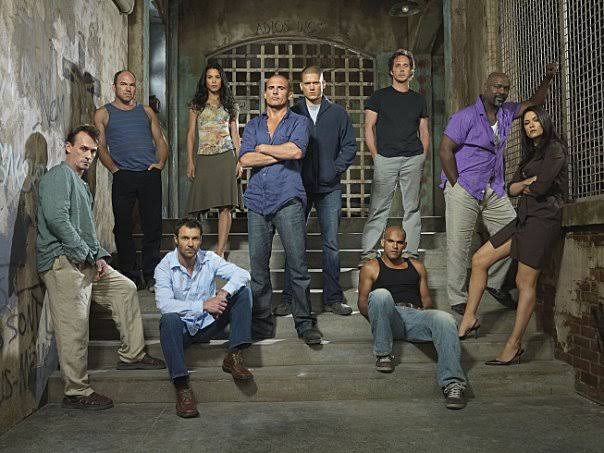
A man’s life is filled with prisons. Some are made of steel bars, others of debt, weak mindsets, toxic relationships, or oppressive systems designed to keep him docile. Unlike women, who are often rescued by society, a man must engineer his own escape. Prison Break isn’t just a show—it’s a blueprint for masculine survival.
Michael Scofield didn’t cry for help. He plotted, adapted, and executed. He understood that intelligence, loyalty, and controlled aggression were his weapons. Every man, whether trapped in poverty, mediocrity, or self-doubt, must do the same. Today we look at the key lessons every man should take from Prison Break—because in life, you either break out or get broken.
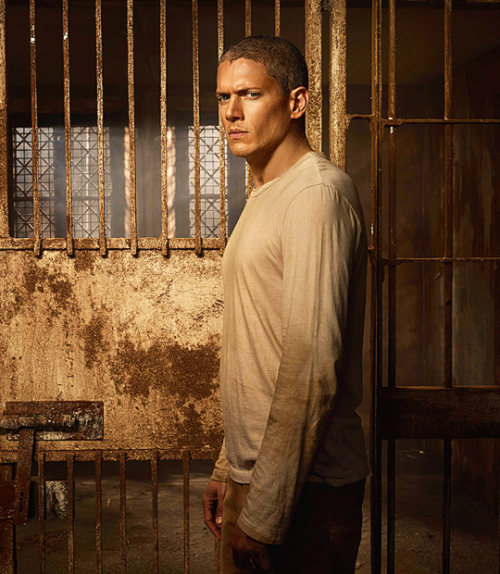
- Every Problem in Your Life Is a Prison of Its Kind
A prison is not just made of bars and guards.
It is anything that traps you—poverty, weakness, debt, fear, addictions, or even a toxic environment.
Most men remain locked inside these invisible walls, not because escape is impossible,
but because they never even try to break free.
Michael Scofield understood this. When Lincoln was sentenced to death, Michael didn’t waste time crying about injustice or blaming the system—he saw the truth:
the prison wasn’t just Fox River; it was the entire structure of power keeping Lincoln there.
Scene: The moment Michael walks into Fox River, he isn’t just another inmate—he is already working on his escape.
While others complain about their sentences, he studies the guards, the routines, the weaknesses in the system.
He doesn’t see a hopeless situation—he sees a puzzle that must be solved.
Every problem in your life is a cage built to contain you.
The question is: Are you just another prisoner, or are you looking for a way out?
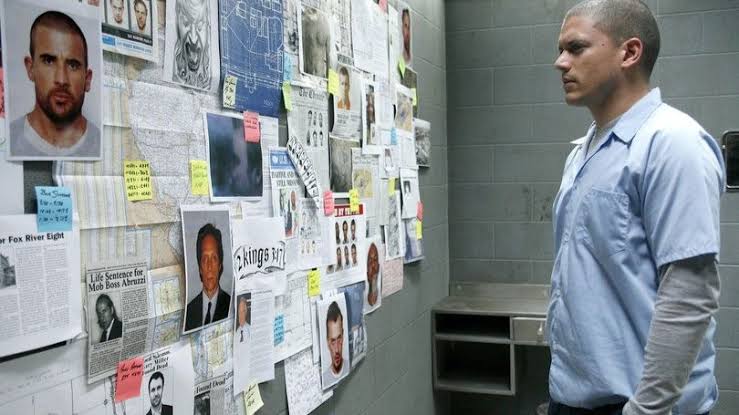
- Every Successful Escape Requires a Plan
You don’t just wake up one day and walk out of prison. Freedom is engineered, not wished for.
A man who tries to escape his situation without a strategy is just another fool running at the walls, hoping they break.
Michael Scofield didn’t rely on luck—he studied Fox River like a battlefield and built his plan down to the last detail.
His blueprint was literally tattooed onto his skin, hidden in symbols and codes.
Every step was calculated—the infirmary access, the pipe routes, the guard schedules.
Scene: When Michael needed to test whether the escape route through the old pipes was still intact, he didn’t just assume
—it was proven when he caused a plumbing issue that forced maintenance to check the structure. Only after confirming it was usable did he proceed.
That’s the difference between a dreamer and a strategist.
Most men fail in life because they want freedom, power, and success, but they have no blueprint for how to get there.
A warrior does not charge into battle unarmed. He plans his attack, secures his weapons, and knows his enemy’s weak spots.
Every escape—from poverty, weakness, or mediocrity—requires a map. The question is: Do you have one?
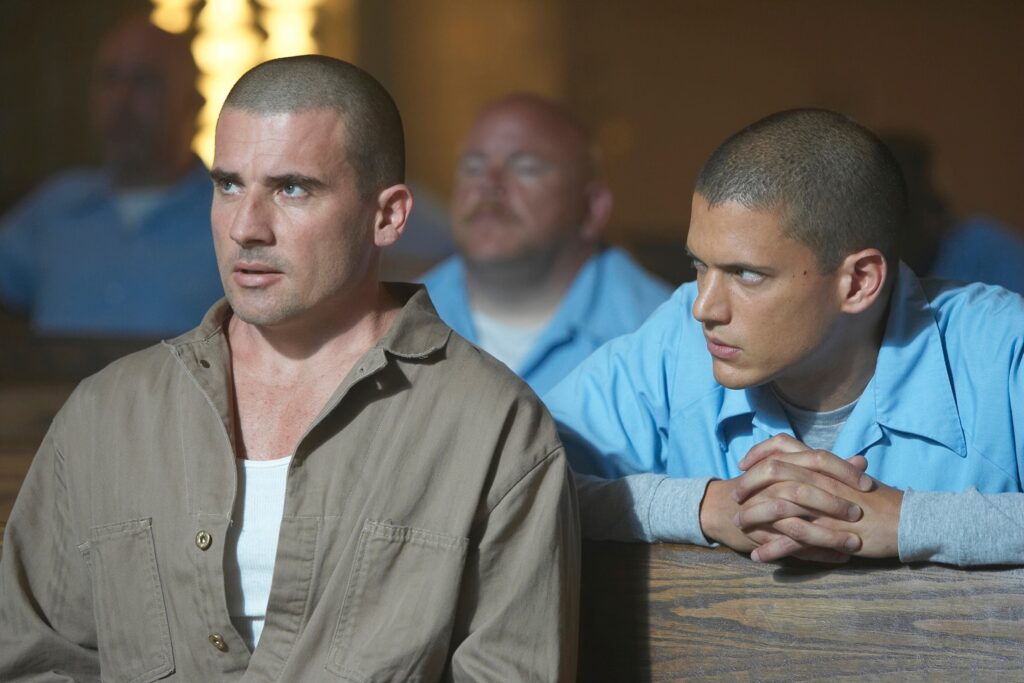
- A Man Must Have a BIG WHY to Escape
No man breaks free just for the sake of it. There must be a reason so powerful that failure is not an option.
Without a strong enough “why,” a man crumbles when things get tough.
Michael Scofield didn’t endure the torture, the fights, and the betrayals just because he hated prison.
He had one mission—to save his brother, Lincoln.
That purpose kept him moving, no matter how painful things got.
Scene: When Michael was locked in solitary confinement, beaten, and nearly broken, he didn’t give up. Why? Because Lincoln’s life was on the line.
His personal suffering meant nothing compared to his ultimate goal.
Most men live like prisoners, trapped in jobs they hate, financial struggles, or weak positions in society—but they stay there because they don’t have a strong enough reason to fight for freedom.
If your “why” is weak, you will quit at the first sign of resistance.
A man must find his reason to fight—whether it’s his family, his legacy, his hunger for power, or his refusal to be controlled.
Without it, he remains a prisoner forever.
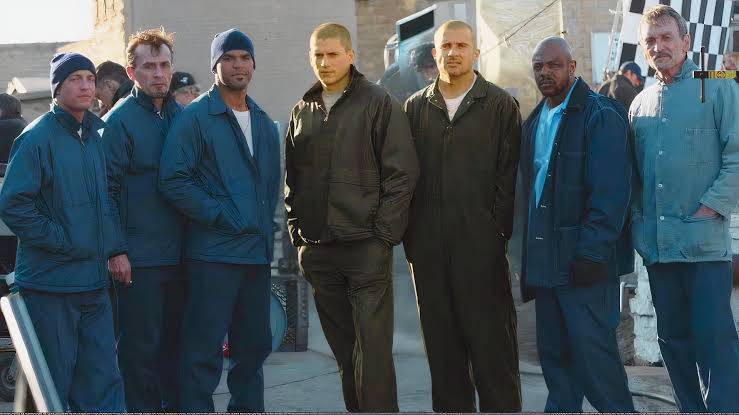
- You Must Recruit the Right Team
No man escapes alone. Power, success, and survival all depend on having the right people by your side.
Michael Scofield was a genius, but even he knew that brains alone weren’t enough—he needed brawn, connections, and wild cards to execute his plan.
He didn’t pick his team based on friendship or emotions. He selected them based on what they could bring to the table:
Sucre – A loyal right-hand man, essential for trust.
Abruzzi – A ruthless mob boss with resources and influence.
C-Note – A man with inside connections for supplies and smuggling.
T-Bag – Unpredictable and dangerous, but useful in tight spots.
Tweener – A low-level hustler who could gather intel.
Scene: When Michael needed a plane for the escape, he didn’t hope for a miracle—he brought Abruzzi into the plan because Abruzzi had the connections to get one.
When he needed access to the infirmary, he used Sucre’s loyalty to help move things along.
This is how real life works.
If you want to escape poverty, rise in power, or build an empire, you need a crew of high-value men—not useless friends who add nothing.
A weak team will drag you down. A strong team will carry you to victory. Choose wisely.
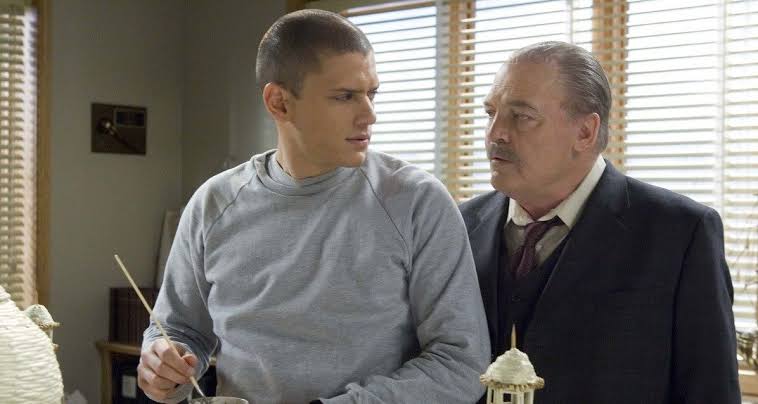
- You Cannot Escape Without Manipulating Others, Breaking Rules, and Being Ruthless
The world does not reward obedient men—it rewards those who take what they want by any means necessary.
If you believe in playing fair, following every rule, and being a “nice guy,” you will remain a prisoner for life.
Michael Scofield was a good man, but when it came to escaping, he did whatever was necessary—lying, deceiving, and manipulating people to get ahead.
He knew that survival and success are not for the weak-hearted.
Scene: When Michael needed the mafia boss Abruzzi’s help, he didn’t ask politely—he forced Abruzzi’s hand by leveraging the one thing he cared about: the whereabouts of Fibonacci, a man Abruzzi desperately wanted dead.
Michael didn’t care about morality—he cared about winning.
Scene: When the escape plan required removing a screw from the bleachers, Michael broke the rules, tampered with prison property, and hid the evidence.
A weaker man would have hesitated, afraid of getting caught. Michael knew that if you follow the rules of your oppressor, you will always remain oppressed.
A man who wants to escape his own prison—whether it’s poverty, powerlessness, or a dead-end life—
must be willing to bend the rules, outthink his captors, and use others to his advantage.
If you’re too afraid to be ruthless, you will always remain someone else’s prisoner.
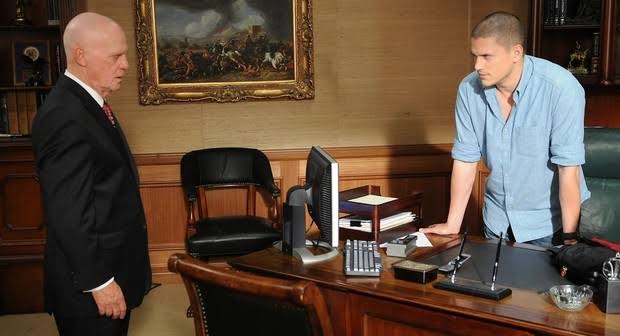
- When Asking for Help, Appeal to Other People’s Self-Interest
No one will help you out of pity. Not your friends, not society, and certainly not your enemies.
If you want someone on your side, you must offer them something they desire.
Michael Scofield didn’t recruit his team by making emotional appeals—he found their weaknesses, studied their needs, and made them an offer they couldn’t refuse.
Scene: When Michael needed Abruzzi’s help, he didn’t beg. He used information about Fibonacci—the man Abruzzi had been hunting for years.
Instead of saying, Help me escape, he said, Help me, and I’ll give you what you’ve been chasing. Instantly, Abruzzi was interested.
Most men fail because they expect people to care about their struggles.
But even those who are free have prisons of their own—money problems, ambitions, revenge, or fear.
Find their prison and use it.
A smart man never asks for a favor. He creates a deal where helping him is in the other man’s best interest.
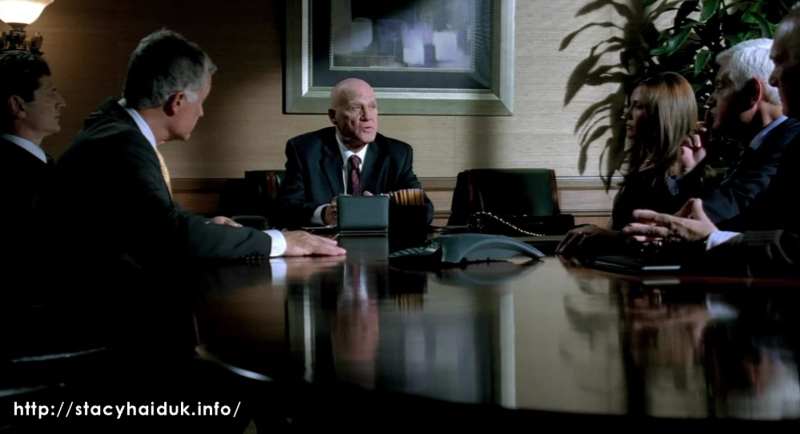
- A Powerful System Controls the World: The Company
Most men believe life is fair, that hard work alone will bring success, and that the system works for them.
But just like in Prison Break, there is always an invisible hand pulling the strings—a powerful system that controls events while the masses remain oblivious.
In the show, The Company wasn’t just some criminal organization—it was a shadow government, controlling politicians, law enforcement, and even the justice system.
They framed Lincoln Burrows, manipulated elections, and eliminated threats without the public ever knowing.
Scene: Lincoln’s entire death sentence was not because he was guilty but because The Company needed him gone.
The evidence, the witnesses, the trial—it was all staged.
Meanwhile, the average citizen watching the news believed the lie, never questioning who was really in control.
This is how the real world works.
The rich, the elite, and the powerful decide outcomes long before the masses even realize what’s happening.
If you don’t understand this, you remain a pawn—complaining about injustice while the real players move in silence.
A man must learn to navigate the system, exploit its weaknesses, and, if necessary, operate in the shadows like The Company itself.
You don’t fight the system head-on—you outthink it, infiltrate it, and use it for your own advantage.
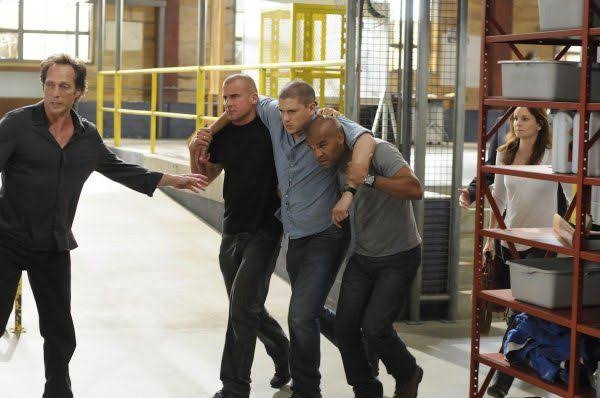
- You Can Turn Your Former Enemies into Loyal Teammates, While Your Own Friends Can Betray You
Loyalty is not guaranteed. The men you trust the most may betray you, while those who once hated you can become your strongest allies.
A smart man understands this and treats relationships as tools, not emotional bonds.
In Prison Break, Michael didn’t let personal grudges cloud his judgment. He knew that powerful enemies could become valuable assets.
At the same time, he never trusted blindly, because betrayal often comes from those closest to you.
Scene: At first, John Abruzzi was Michael’s worst nightmare—beating him, torturing him, and trying to break him.
But Michael turned his enemy into an ally by offering him what he wanted most: the location of Fibonacci.
Abruzzi went from tormenting Michael to being one of his most loyal supporters.
The FBI agent Mahone, warden Bellick and Agent Kallerman all worked to help Michael and Lincoln.
Scene: On the other hand, Tweener, who seemed like an innocent recruit, betrayed Michael the moment he got a better deal from the guards.
Likewise, Sucre—his closest friend—nearly abandoned the plan for his personal reasons. It was never about friendship. It was about self-interest.
This is real life.
The men who smile with you today can sell you out tomorrow for the right price, while your worst enemy can become an ally if you offer him something valuable.
A man seeking power must master this lesson: Don’t expect loyalty—create it. Don’t hold grudges—use people.
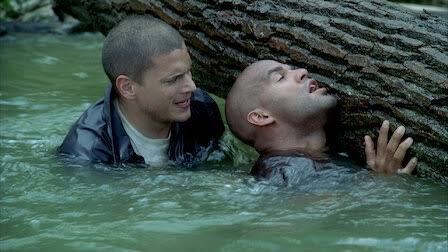
- You Can Escape From Almost Every Problem—Except Death, Of Course
There is no prison that a determined man cannot escape—except the grave.
As long as you are alive, no matter how deep you are buried, no matter how impossible the situation seems, there is always a way out.
The only true defeat is death.
Michael Scofield proved this time and time again. No cell could hold him. No wall could stop him.
Whether it was escaping Fox River, breaking out of Sona, or outmaneuvering The Company, he always found a way.
Scene: In Season 3, Michael was thrown into Sona, a brutal prison where no one had ever escaped.
It was a death sentence.
But while other men gave up, Michael saw the weak points, studied the patterns, and once again found his way to freedom.
On the other hand, when death came, even Michael couldn’t escape.
He outplayed men, systems, and entire governments, but in the end, his time ran out. The finality of death is what makes life so urgent.
Every problem in your life—poverty, weakness, failure—can be broken out of if you’re willing to strategize and fight.
The only thing you can never escape is the one thing that is guaranteed: death.
So while you’re alive, act. Because the only real prison is time itself.

- Some Women Can Be Assets, While Others Are Regrettable Liabilities
A man’s choice of woman can either help him escape his prisons or tighten his chains.
Some women are loyal and resourceful, standing by your side in times of war.
Others are emotional deadweights, slowing you down, betraying you, or leading you to ruin.
Michael Scofield was a man of focus—he didn’t let love blind him to reality. He knew that not all women are worth the risk.
Scene: Dr. Sara Tancredi was an asset. She had access to the infirmary, the key to the escape.
But more than that, she proved her loyalty, risking her career and life to help Michael escape.
She wasn’t just a lover—she was a strategic ally.
Scene: On the other hand, Maricruz, Sucre’s love interest, was a liability. Sucre’s attachment to her nearly ruined the entire escape.
His emotions made him reckless, forcing him into mistakes that almost got him caught.
She wasn’t actively sabotaging him, but his obsession with her made him weak.
A powerful man must know which women to keep close and which to cut off. If a woman helps you achieve your mission, she’s an asset.
If she distracts you, drains you, or makes you weak, she’s a liability.
A wise man chooses a woman like he chooses his weapons—carefully and for a purpose.

- One of the Easiest Ways to Manipulate a Man Is to Involve His Loved Ones—Family and Children
A man can be unbreakable when standing alone, but if you want to control him, threaten those he loves.
Nothing weakens a man faster than knowing his family, children, or loved ones are in danger.
Michael Scofield was highly intelligent, resourceful, and nearly impossible to manipulate—until The Company used his loved ones against him.
Scene: When Lincoln was framed for murder and sentenced to death, Michael threw himself into prison willingly just to break him out.
He would have never risked so much for himself—but for his brother, he gambled everything. Linc was the only family Michael knew.
Scene: When The Company wanted to control Lincoln, they didn’t threaten him directly—they kidnapped his son, L.J.
Lincoln was a hardened man, but the moment his son was involved, he became vulnerable, desperate, and easier to control.
Scene: Even the mighty General Krantz, the head of The Company, was eventually manipulated when his daughter was kidnapped.
The man who controlled governments, assassinated presidents, and ran secret global operations—crumbled when his own blood was threatened.
This is how rulers, criminals, and governments have controlled men throughout history.
A man alone is dangerous. A man with weaknesses is controllable.
Lesson: If you have loved ones, protect them, but never let the world know they are your weakness.
If your enemies know what you love the most, they will use it to put a leash around your neck.
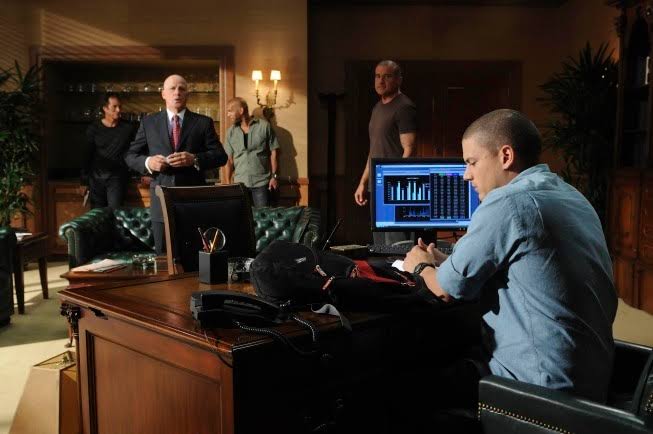
- Your Employer Doesn’t Care About You—Only About the Problems You Solve. You Are Readily Expendable.
Loyalty in the workplace is a one-way street—you can dedicate years of your life to a company, but the moment you stop being useful, you are discarded like trash.
Your boss is not your friend. Your employer does not care about your dreams, your struggles, or your loyalty. He only cares about results.
Prison Break exposes this brutal truth through the fate of Brad Bellick and Paul Kellerman—
two men who served their masters with blind loyalty, only to be discarded the moment they became liabilities.
Scene: Bellick, once the head guard at Fox River, ruled over inmates with an iron fist. He believed the prison system valued him—until he was fired overnight without hesitation.
His years of service meant nothing. He went from being in charge to being just another inmate.
His belief that loyalty mattered was his downfall.
Scene: Paul Kellerman, the ruthless agent who carried out assassinations for The Company, thought he was untouchable.
He silenced threats, eliminated enemies, and followed orders without question.
But the moment he became inconvenient, The Company turned on him, framing him for crimes he didn’t commit.
His loyalty was repaid with betrayal.
This is reality. Your job is a business transaction.
You are there to solve problems—the moment you stop being useful, you will be replaced.
Lesson:
Don’t expect loyalty from your employer—build your own power.
Use your job to gain skills, connections, and resources, but never mistake it for security.
The only true job security is being valuable—if not to them, then to yourself.
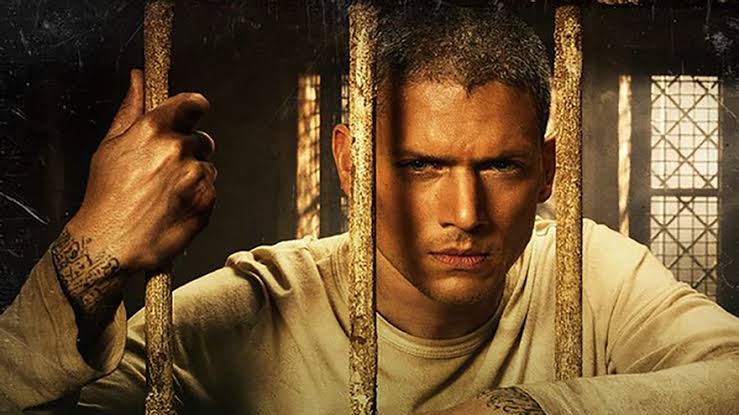
- When You Are Powerless, Society Will Leave You to Die Alone
In this world, a powerless man is invisible.
No one will save you. No one will fight for you. If you cannot defend yourself or offer value, society will abandon you like a wounded animal.
In Prison Break, men who lost their power were discarded without mercy.
The system, the law, and even their so-called friends moved on without hesitation.
Scene: When Lincoln Burrows was framed for murder, the world didn’t care if he was innocent.
His former allies, the justice system, and even people who once respected him left him for dead.
His innocence didn’t matter—he was powerless, so he was forgotten.
Scene: When Theodore “T-Bag” Bagwell lost his hand and became a crippled fugitive, he realized the harsh truth: no one in society cares for a weak man.
He begged for help, tried to gain sympathy, but people only value you when you can offer them something.
Scene: When Michael was presumed dead, the world moved on instantly. Even those closest to him had no choice but to continue their lives.
Because in the end, a powerless man is just another forgotten name.
Lesson:
Power is the only real currency in this world. Without it, you are nothing.
People only help you when you are useful. If you become weak, they will step over your corpse.
Build your strength, your influence, and your resources. Because if you ever fall, the world will not catch you.
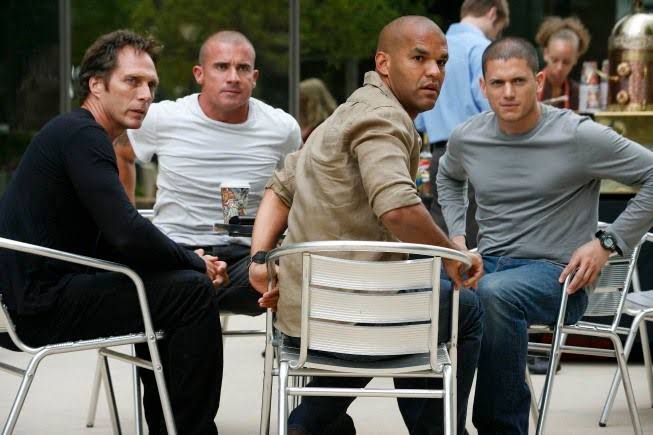
- Justice is an Illusion—Only Power and Strategy Can Set You Free
The world does not reward the righteous or punish the wicked—it rewards the powerful and punishes the weak.
Justice, fairness, and morality are comforting lies told to keep men obedient. If you want true justice, you must take it by force.
Prison Break makes this painfully clear. Innocence doesn’t matter. Guilt doesn’t matter.
The only thing that matters is who holds the power.
Scene: Lincoln Burrows was innocent, yet he was sentenced to death because powerful forces decided he was guilty.
No amount of truth, evidence, or moral arguments could save him—only Michael’s plan, strategy, and ruthlessness could.
Scene: Michael Scofield played by the rules in the beginning, but he quickly learned that rules don’t matter in a rigged game.
To escape, he had to lie, manipulate, and break the system. Had he waited for “justice,” Lincoln would have died.
Scene: When Kellerman was abandoned by The Company, he realized justice was never real.
The system he served so loyally turned on him without hesitation.
The only way to clear his name was to betray his former masters and rewrite the story himself.
Lesson:
Justice is a tool used by the powerful to control the weak. If you want fairness, take it for yourself.
The law serves those who control it. If you don’t hold power, it will crush you.
If you are wronged, don’t wait for justice—engineer your own escape.
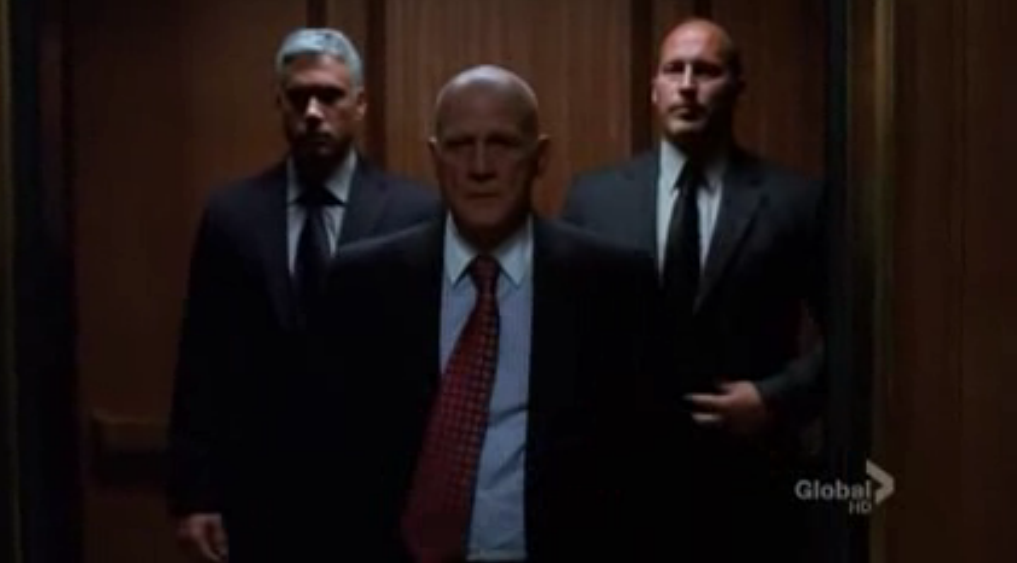
- Fear Controls the Masses—But the Fearless Man Controls Himself
Most people are prisoners, not because they are physically locked up, but because fear has chained their minds.
Fear of failure, fear of pain, fear of authority—this is how the powerful keep the weak in line. But a man who masters his fear becomes unstoppable.
Prison Break shows how fear is the ultimate tool of control. Those who overcame it escaped, thrived, and rewrote their fate.
Scene: Most inmates at Fox River accepted their fate. They feared punishment, solitary confinement, or death. That’s why they never tried to escape.
But Michael Scofield? He had no fear. He faced beatings, near-death experiences, and betrayals—but he kept moving forward.
Scene: The Company ruled through fear. They didn’t need to kill everyone—they only needed to make an example of a few.
The threat of suffering kept most people obedient. But Michael and Lincoln refused to bow. They risked everything, and in the end, they broke free while their captors fell.
Scene: T-Bag, as twisted as he was, understood this truth. He manipulated weaker men by preying on their fears.
He didn’t need strength—his victims were too afraid to resist. But when he faced men who weren’t scared of him, his power crumbled.
Lesson:
Fear is the invisible prison that keeps most men weak. The moment you overcome it, you become truly free.
Society, bosses, governments, and even criminals use fear to control you. Learn to control yourself, and they lose all power over you.
The fearless man may still suffer, but unlike the masses, he will never be a slave.
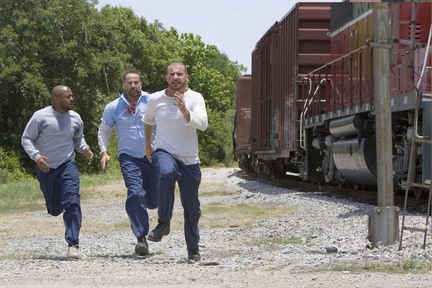
- Information is Power—The Man Who Knows More Wins
In every battle—whether in prison, business, or life—the winner is rarely the strongest. It’s the man who knows more, sees more, and stays three steps ahead.
Prison Break proves this over and over again. The men who survived, escaped, and thrived weren’t always the toughest—
but they were the ones who had the right information at the right time.
Scene: Michael Scofield’s entire escape plan wasn’t based on brute strength—it was built on information.
He studied Fox River’s blueprints, mapped out guard routines, memorized security flaws, and even tattooed his escape route on his body.
While others reacted blindly, he already knew the path forward.
Scene: The Company controlled governments, assassinated presidents, and crushed enemies because they had information no one else did.
They didn’t need armies—they used secrets, blackmail, and intelligence to stay untouchable.
Scene: Alexander Mahone, the FBI agent hunting the escapees, was always one step behind Michael—
but the moment he started thinking like him, gathering intel, and predicting his moves, he became Michael’s greatest threat.
Because information levels the playing field.
Lesson:
In war, business, and survival, the man with superior information will always dominate the man with just raw strength.
Gather knowledge before making a move. Study your enemies, your environment, and your opportunities.
Stay ahead of the game. If you know what’s coming, you can control what happens next.
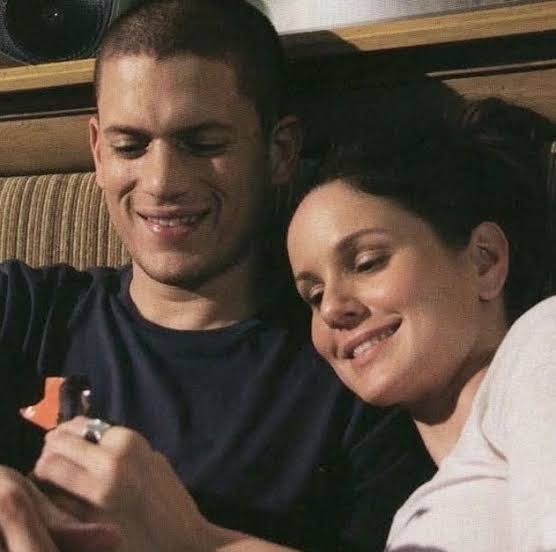
- The System is Rigged Against You—Learn to Play Outside the Rules
The world is not fair, and the game is not designed for you to win. The system is built to keep you trapped, obedient, and powerless.
If you play by the rules that others set, you will always be at their mercy. The only way to win is to break free from the system itself.
Prison Break exposes this harsh truth repeatedly. Those who blindly followed the system were destroyed.
Those who outsmarted it, bent the rules, or rewrote them were the ones who survived.
Scene: Lincoln Burrows was sentenced to death not because he was guilty, but because the system had already decided his fate.
It didn’t matter what evidence existed—his life was written off before the trial even began. Only by escaping did he get a chance at justice.
Scene: Michael Scofield knew that legal appeals wouldn’t save his brother.
The justice system was corrupt, the government was controlled, and The Company had already decided Lincoln would die.
Instead of trusting the system, he created his own rules and broke out.
Scene: Agent Kellerman followed orders, believing that loyalty to the system would protect him.
But when he became inconvenient, he was thrown away like garbage. It was only when he betrayed the system that he reclaimed his power.
Lesson:
The system is not designed to help you—it is designed to control you.
If you wait for fairness, justice, or permission, you will rot in your cage.
The strongest men in history did not follow the system—they created their own path.
So,
Escape or Rot—The Choice is Yours
Life is a prison in many forms.
Whether it’s poverty, dead-end jobs, bad relationships, weak mindsets, or corrupt systems, every man faces cages designed to keep him in place.
The difference between the free and the enslaved is simple—one fights to escape, while the other accepts his chains.
Prison Break is not just a TV show—it’s a blueprint for survival, power, and freedom. It teaches us that:
Every problem is a prison, and every prison has an escape.
You need a strong reason to fight, or you will accept defeat.
You cannot escape alone—recruit wisely, manipulate when necessary, and never trust blindly.
Rules are written to keep you weak—if you want to win, you must rewrite the rules.
Fear controls the masses, but those who master it will rule over them.
Justice is an illusion—the only real justice is the one you create for yourself.
The question is: Are you planning your escape, or are you waiting for the system to “free” you?
Because here’s the truth—no one is coming to save you.
Be Michael Scofield. Make your plan. Break your chains. Walk out a free man.

